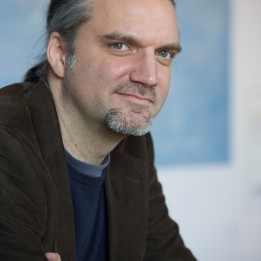When black holes collide, their enormous gravitational forces create ripples in the fabric of space and time. Although Einstein predicted the existence of these gravitational waves, he was certain that they could never be detected. Advances in technology, from lasers to modern quantum optics, have fundamentally changed the way we design precision instruments. Measuring gravitational waves is now possible but remains one of the greatest challenges in experimental physics.
The Einstein Telescope is the initiative of more than 750 scientists to create a new gravitational wave observatory in Europe. In 2021 Einstein Telescope entered the European roadmap of large scientific infrastructures (ESFRI), after a succesfull application supported by 5 European countries (including Belgium and the Netherlands). The Euregion Meuse-Rhine (EMR) is listed as one of the two possible locations for the Einstein Telescope.
In order to reach its ambitious sensitive target the Einstein Telescope will require significant technology advances compared to current facilities, from cryogenic suspensions to Newtonian noise subtraction. In this talk I will provide a short overview of the unique challenges and plans for the Einstein Telescope.
- 10:30-10:55

